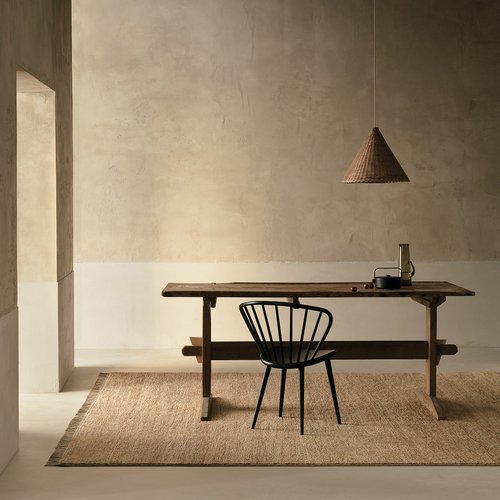
4 min read
Armadillo: Pioneering Sustainability in the World of Rugs
The brand creates timeless, handcrafted rugs that celebrate traditional artistry while prioritizing the environment and social good.

4 min read
WLLW explores de Le Cuona's healthy and sustainable textiles with palettes and textures that evoke the natural world.
Supple, breathable linen is durable, yet carries an air of refinement, making it a go-to material for curtains, bedding, upholstery and accessories that brighten and elevate interiors. The finest versions originate from flax cultivated in the rich soils of the Flanders region in Belgium and neighboring France. Here, the unique combination of fertile earth and the temperate Atlantic climate contributes to the growth of high-quality flax, which grows tall; and in the world of linen, the longer the fiber, the better the quality. Proficient spinners expertly blend batches of these long fibers, grown across different areas and years, to yield textiles of unmatched quality, such as those created by de Le Cuona.
When South African-born Bernie de Le Cuona, who established the fabric house bearing her name in Windsor in 1992, first laid eyes on a Belgian flax field, she was captivated. Today, versatile linen, rounded out with wool, silk and cashmere, comprises the core of de Le Cuona’s opulent textiles range, often with innovative flourishes such as stonewashing and embossed patterns.
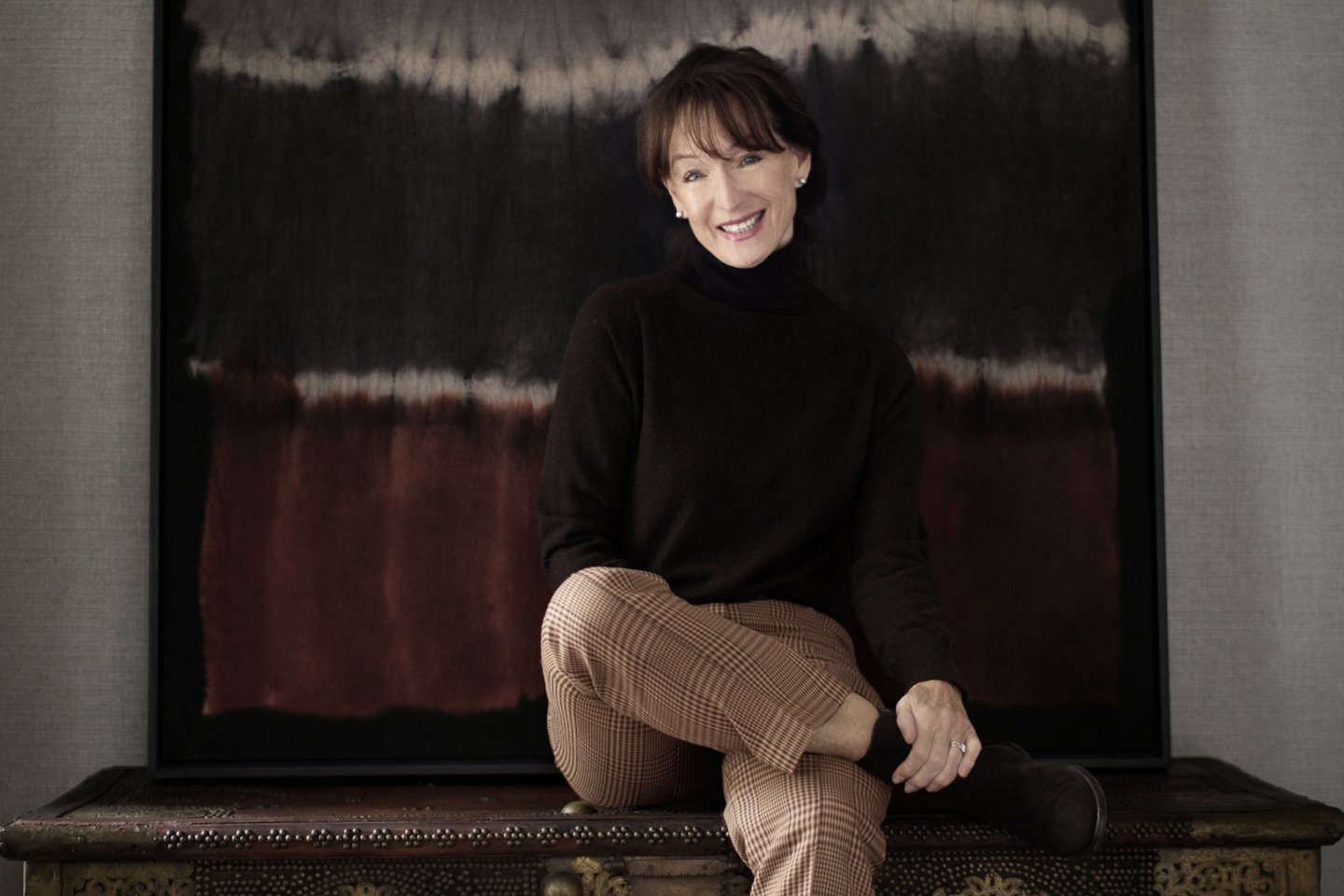
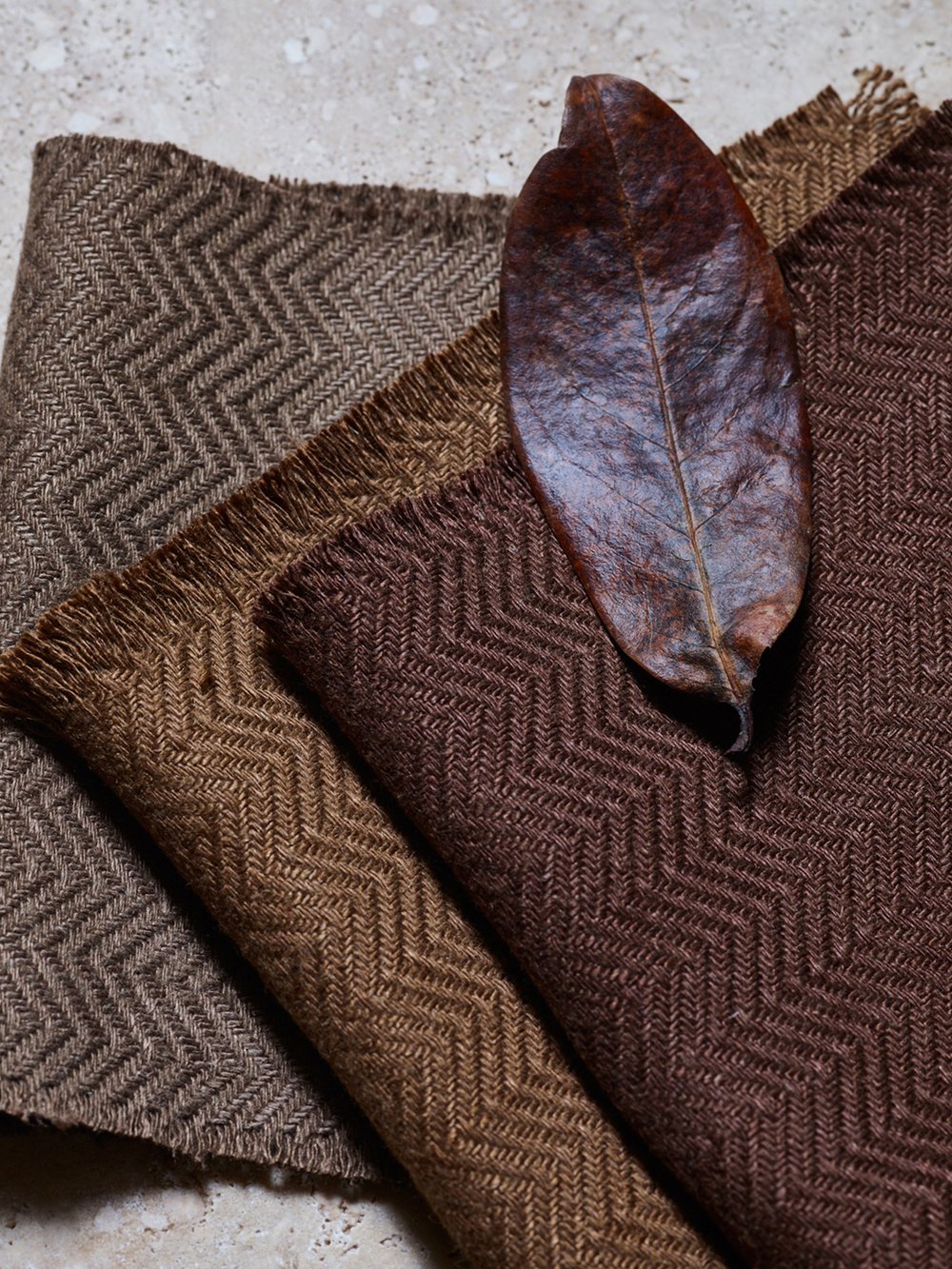
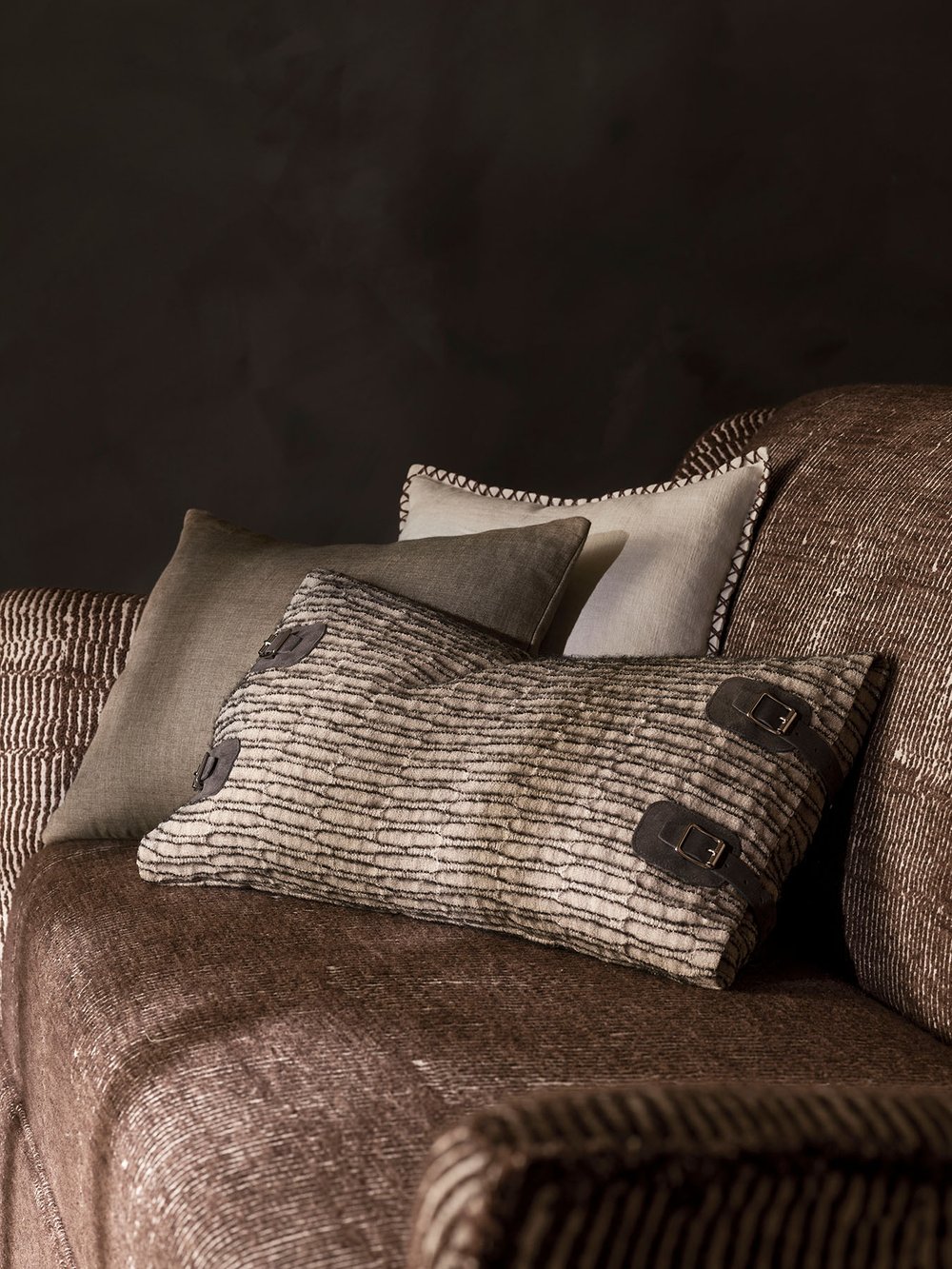
Upon arriving in the UK after a year residing in Brussels, de Le Cuona was buoyed by her background studying interior architecture and recalls being driven by an impassioned but simple “wish to work with beautiful fabrics” that stood out from the others on the market. She promptly established her own company.
Her fabrics quickly made an impression, with palettes and textures that evoke nature. “Everything with me starts with the land because I've lived on a farm, and I keep returning to the bush because that’s where my heart and soul are,” she says. “All our products remind you of Africa, whether the colors were inspired by a pebble or a piece of bark.”
Raised in Pretoria, de Le Cuona was keenly aware of the country’s disparities and felt strongly about waste. Sustainability was hardly a buzzword in the early 1990s, but from the day de Le Cuona started the business, “looking after the environment,” as she puts it, was a vital part of her ethos. This has since “morphed into concern about the chemicals used in fabric production and how they can affect our homes. I need to know where all our fibers come from.”
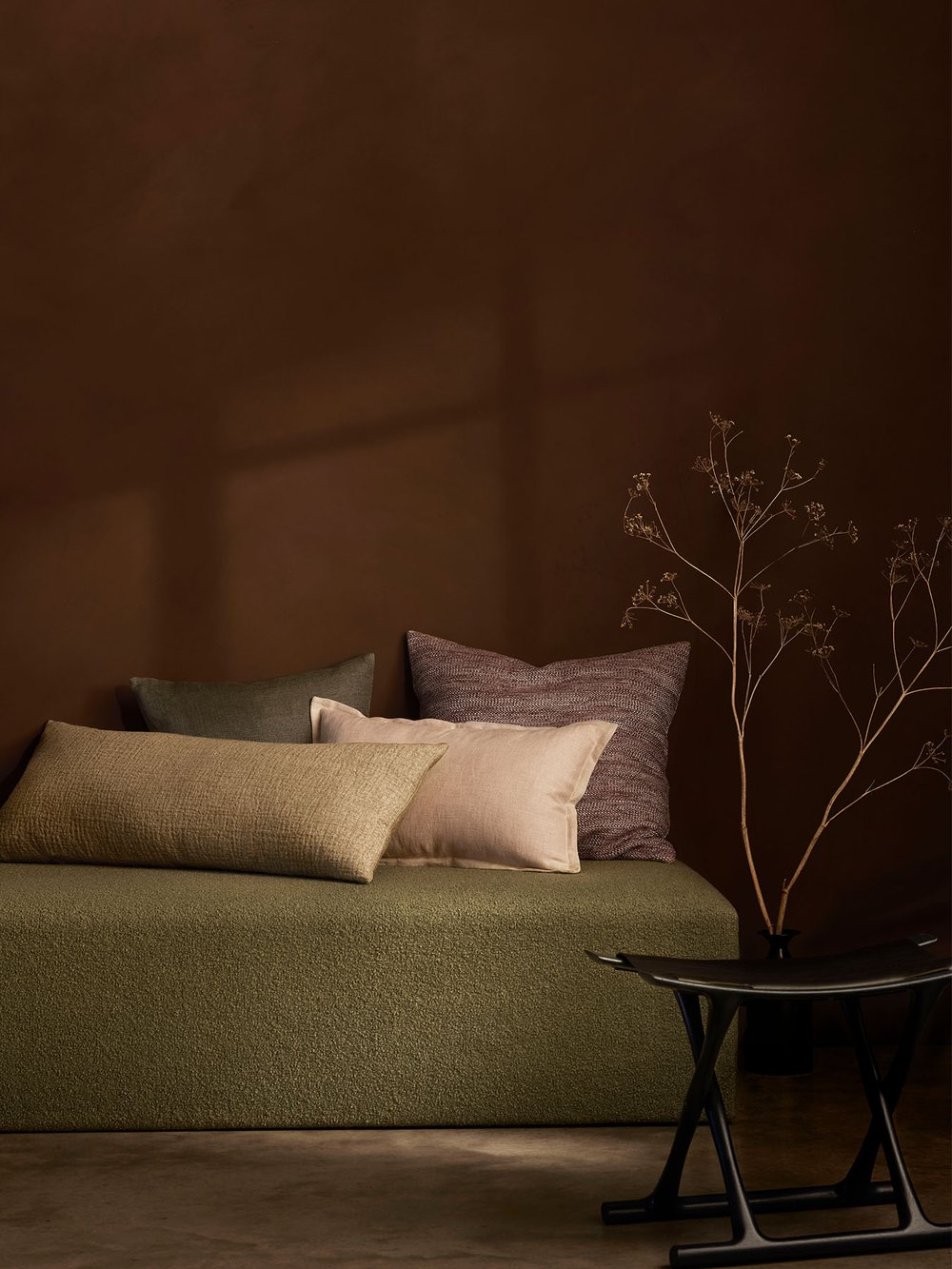
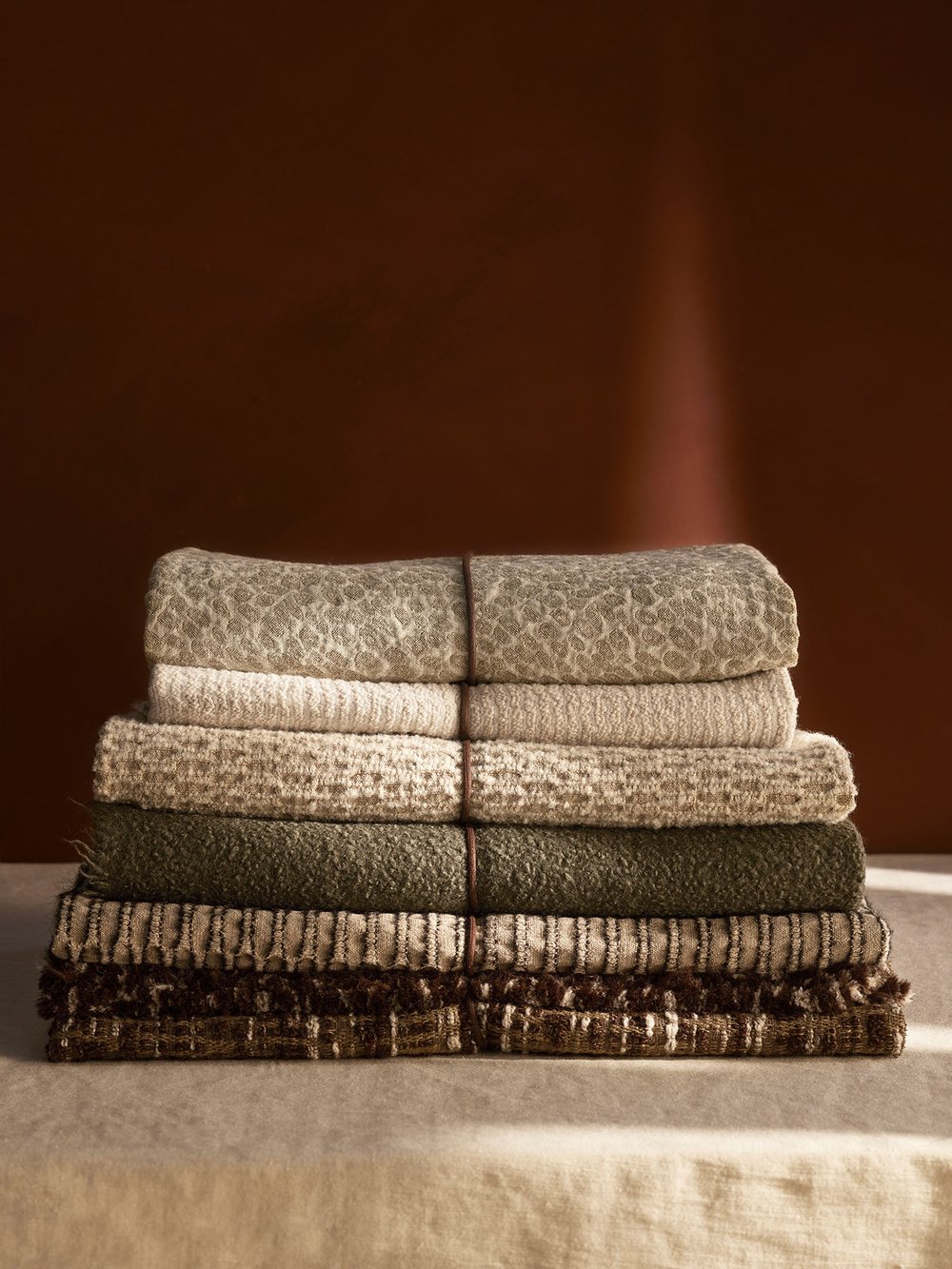
Most fibers, including Flanders flax (that only uses rainwater and water that is filtered back into the river), are sourced from small, family-owned farms, and woven in mills in Europe. “We harness their expertise handed down through the generations,” says de Le Cuona.
All yarns used by de Le Cuona are carefully examined. Suppliers of wool, for example, must prove animal welfare has been taken into consideration, while linen producers need to have Masters of Linen or OEKO-TEX certifications. “It’s quite hard and quite expensive to work with the most noble, natural fibers,” explains de Le Cuona, and that’s especially true when trying to attain organic certification.
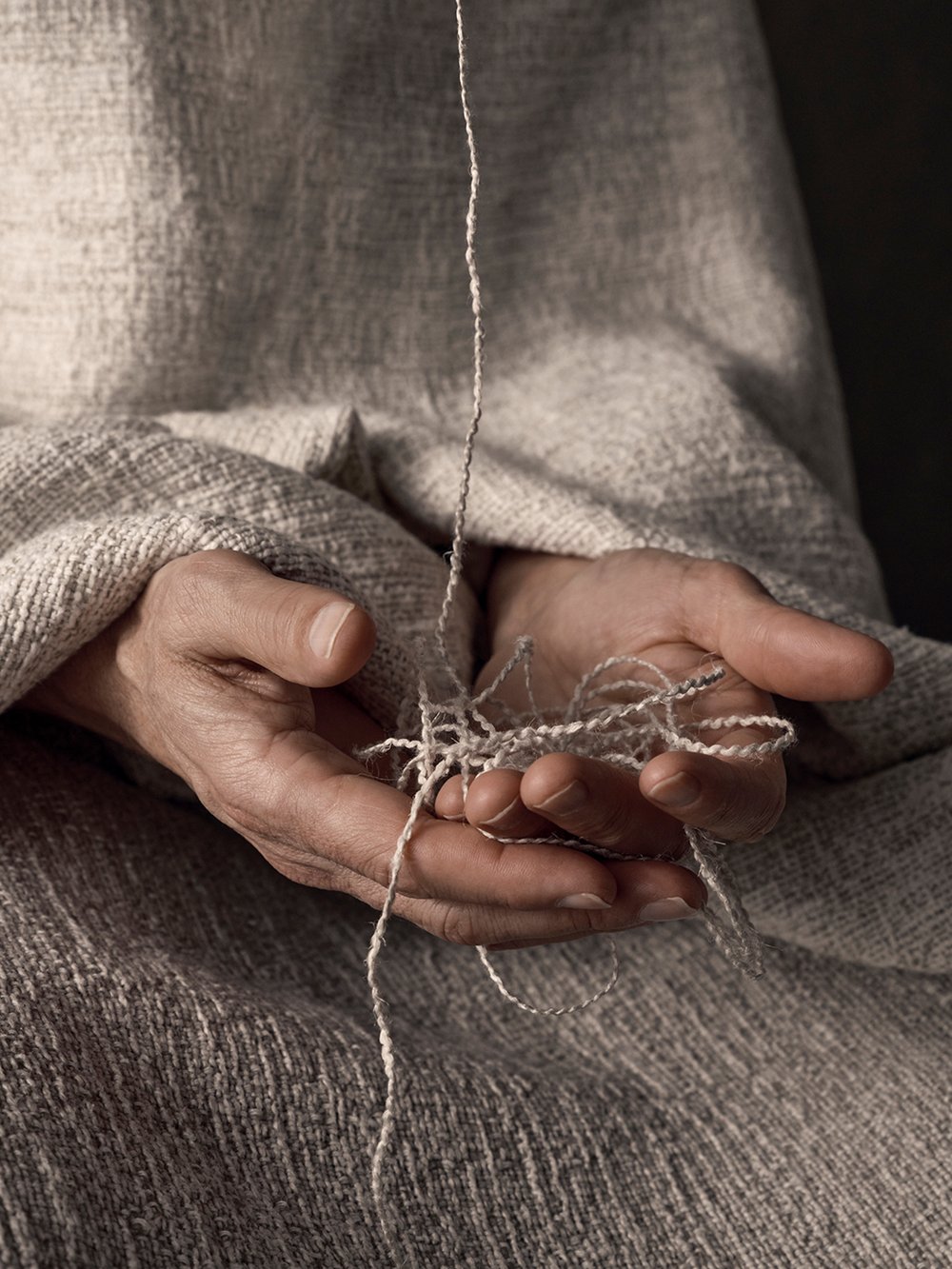
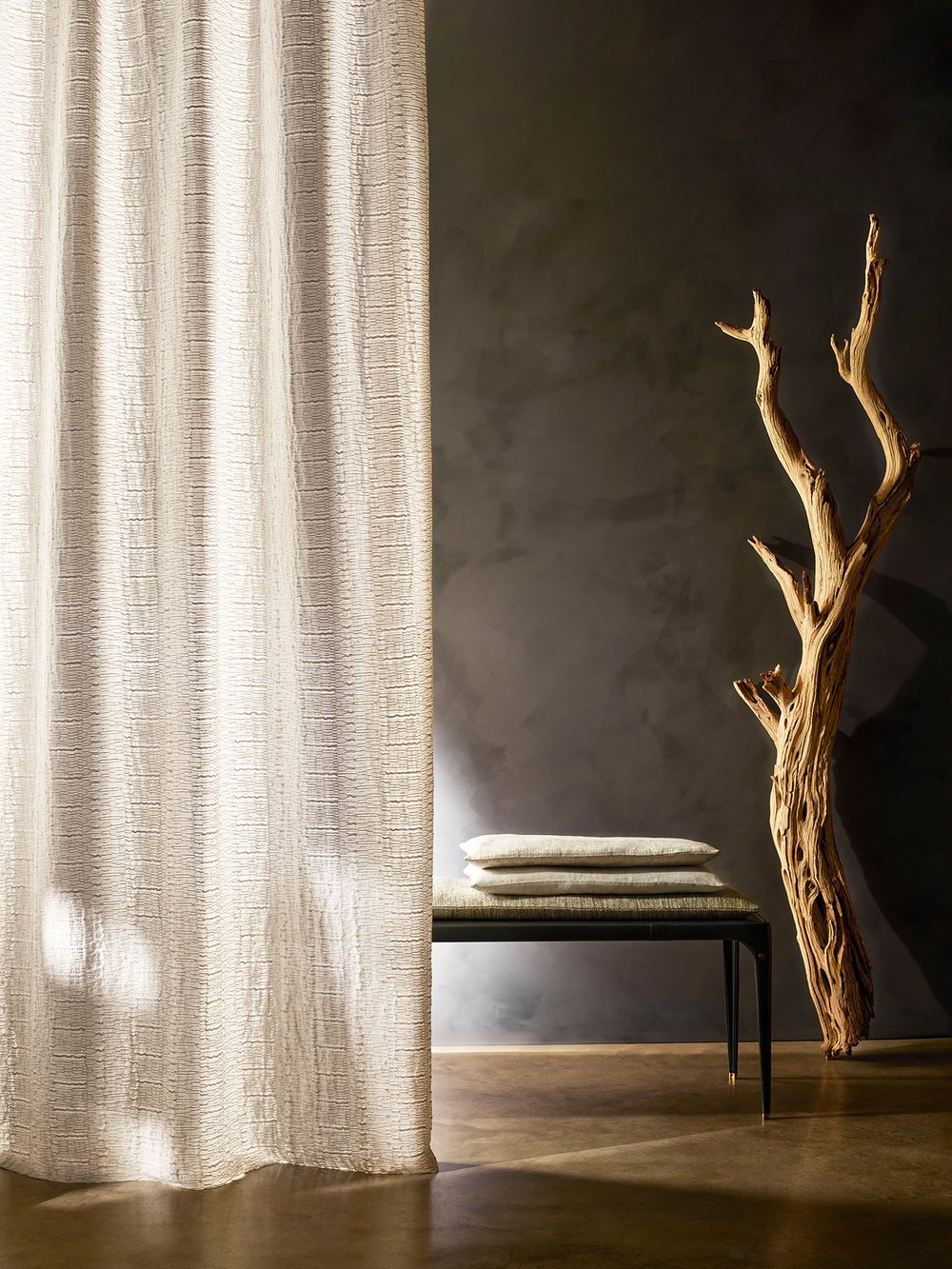
Currently, the only certified organic linen made in Europe comes courtesy of a consortium of French farmers, a collaboration that the ambitious de Le Cuona managed to forge, unveiling Pure in 2020—an ensemble of 100 percent organic linens. The exclusivity of the consortium presented unique challenges, notably in accessing the limited product and navigating the rigorous organic certification process. No pesticides can be used in the production, and every element, including dyes and additional collaborators, must meet strict certification standards. This initiative not only reflects de Le Cuona's dedication to environmental stewardship but also highlights the intricate and costly journey to offer a truly organic product in the luxury textiles market.
“Everything with me starts with the land because I've lived on a farm, and I keep returning to the bush because that’s where my heart and soul are."
Bernie de Le Cuona
This socially responsible collection achieved the Global Organic Textile Standard (GOTS), the leading worldwide standard for organic fibers that considers the textile-making process in its entirety. It considers every stage of the production process, from the harvesting of raw materials to the avoidance of harmful chemicals, and ensures transparency of the supply chain.
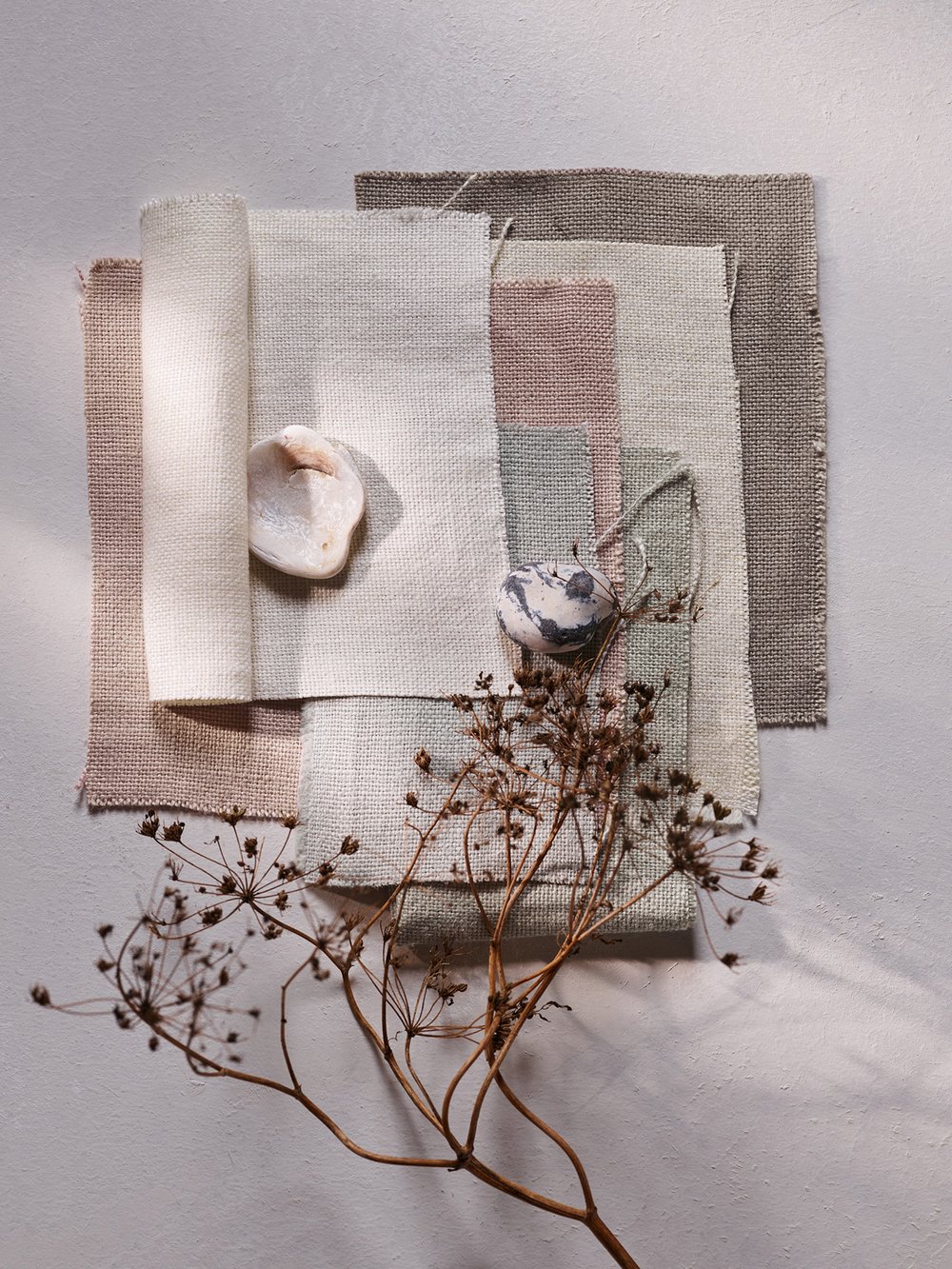
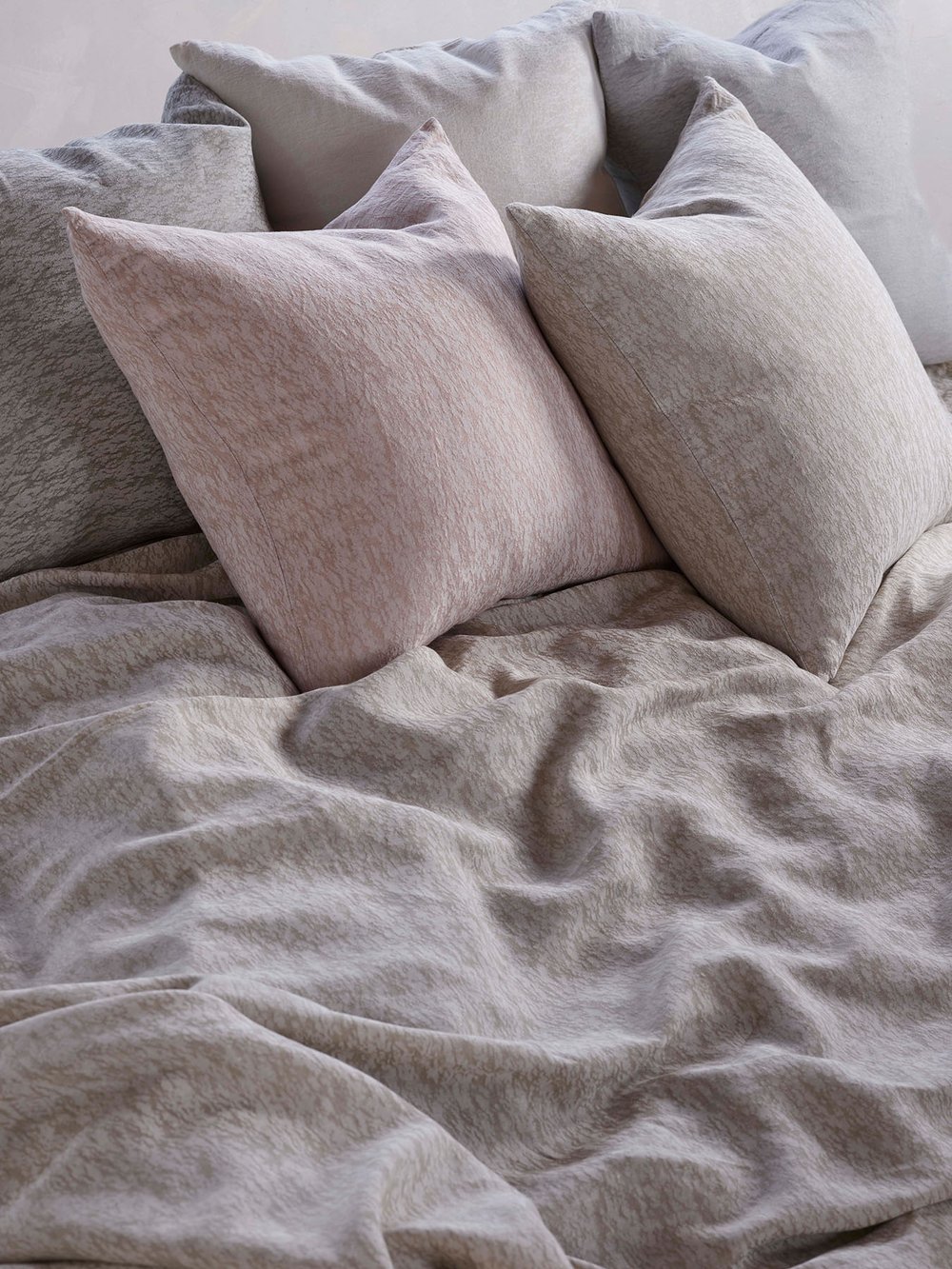
Pure also features sophisticated designs with delicate herringbone motifs and rugged, weathered textures, presented in calming hues of umber and silver maple. The demand for this coveted organic linen, particularly from the fashion industry, has reached new heights. Consequently, de Le Cuona, who is also exploring organic wool options, is waiting for enough material to become available to create new products within the Pure range.
Fans of the label, however, also have the recently launched Paper Shadows collection, spun from a mix of linen and wool, to enjoy. This range of 12 meditative designs draws from Japanese aesthetics and nod to the likes of traditional embroidery and Shibori dyeing, while featuring meandering lines, dappled dots and felted finishes.
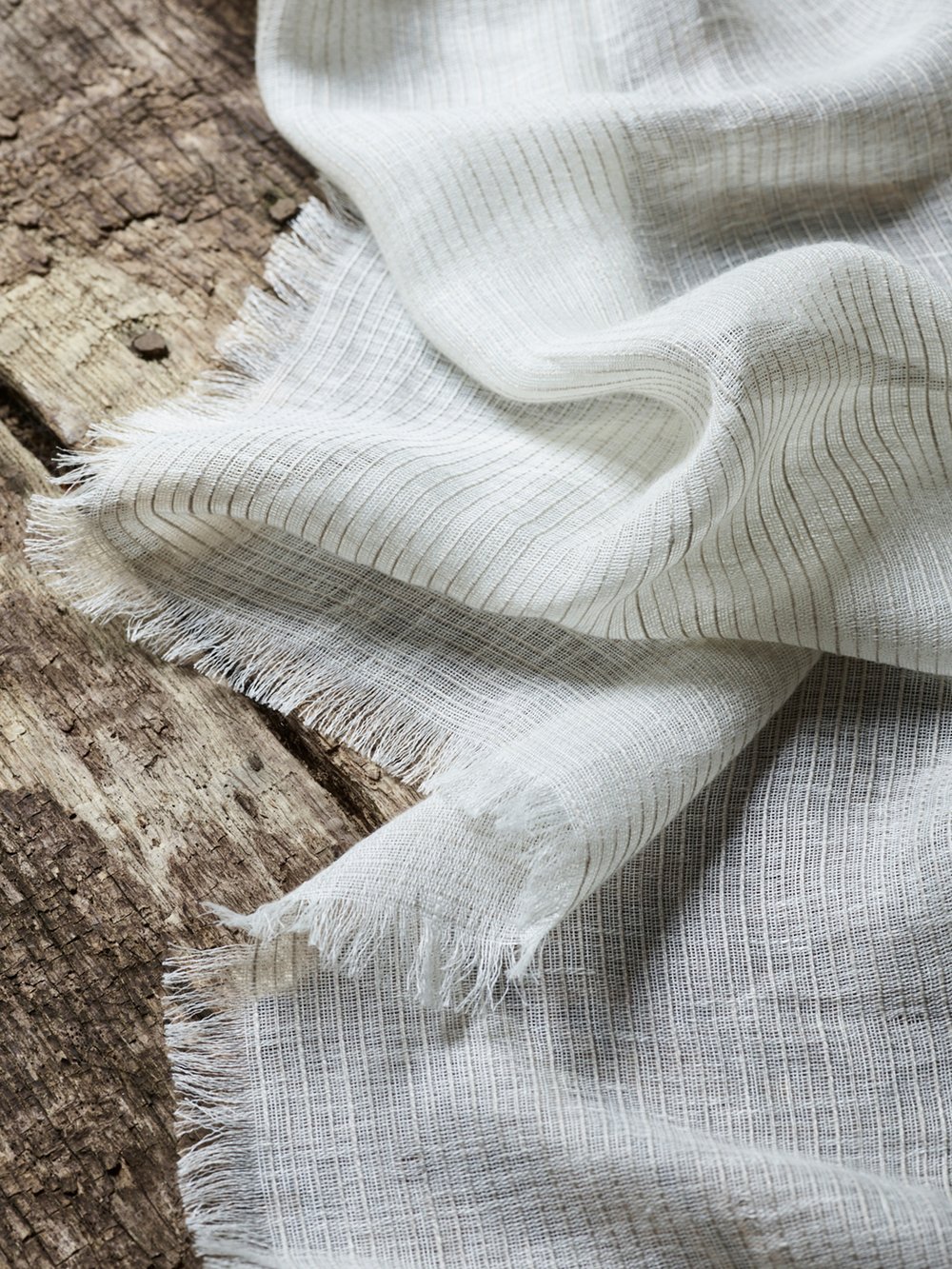
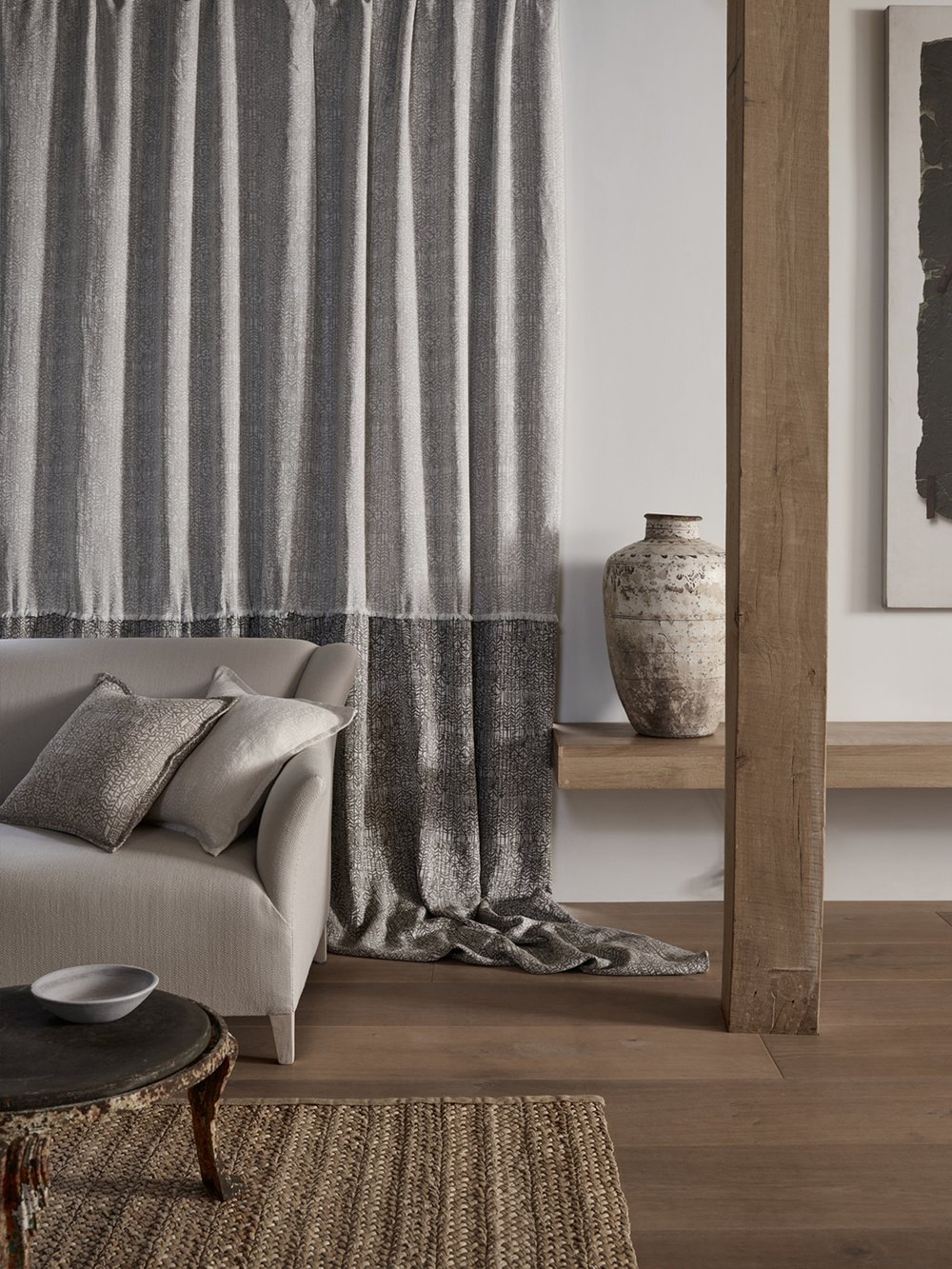
Come March 2024, a new collection will make its debut, comprising hemp, which is new to the de Le Cuona portfolio of linens, wools and paisleys. This will complement the brand’s already robust lineup of paisleys woven in Kashmir, the only production location outside of Europe.
“Paper Shadows has interesting structures and textures, but this one,” promises de Le Cuona, “will be quite elegant.” It will also inevitably carry the hallmark of sustainability and originality that have guided her throughout her journey for more than 30 years.
Photography: de Le Cuona, Jake Curtis

4 min read
The brand creates timeless, handcrafted rugs that celebrate traditional artistry while prioritizing the environment and social good.
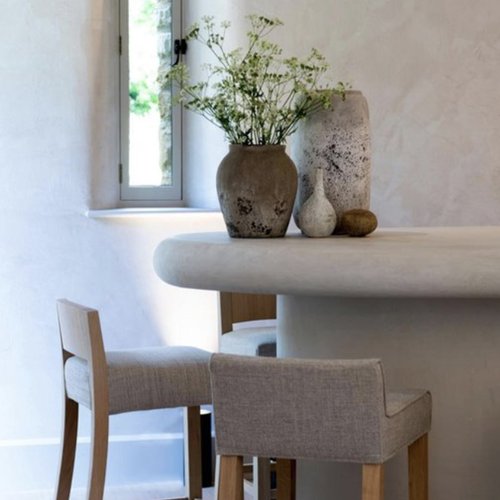
3 min read
Clayworks is embracing natural materials and traditional techniques, to add depth, tonal interest and warmth to healthy homes.